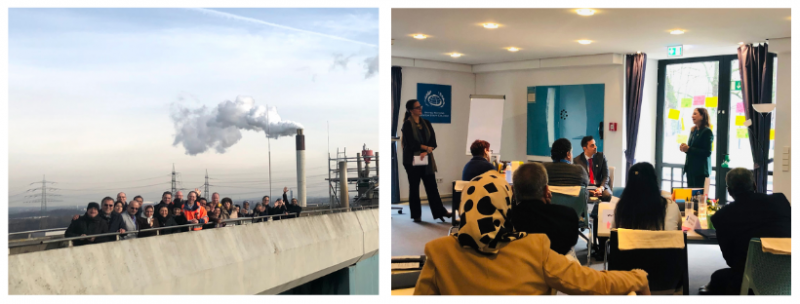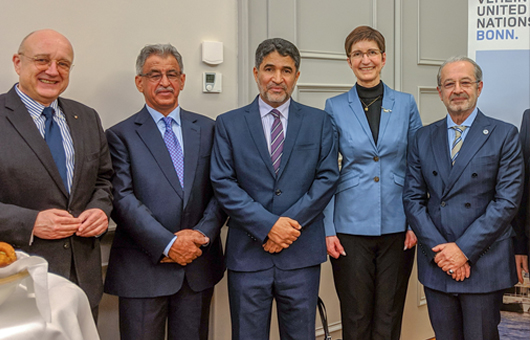Fostering Country Leadership on Health and Well-Being
The 2030 Agenda with its Sustainable Development Goals (SDGs) offers an ambitious plan of action for countries, the UN system, and all other development actors. WHO and the health sector led by Ministries of Health are critical partners for the development and implementation of sustainable policies and practices to meet the health targets under the SDGs. To achieve health-related SDGs, particularly SDG 3, it is essential that leadership capacities of senior managers from Ministries of Health and WHO country representatives (WRs) are enhanced, and that their ability to build, sustain, and nourish multi-sectoral partnerships to promote health and well-being under the 2030 Agenda is strengthened.
In line with the General Programme of Work (GPW 13) of WHO and Vision 2023 in the Eastern Mediterranean Region, the Department of Health Protection and Promotion at the WHO Regional Office for the Eastern Mediterranean (EMRO) partnered with the United Nations System Staff College, a premier organization in leadership training within the UN system, to develop and implement a training programme on country-level leadership for health and well-being.
During the 5 days, participants strategically discussed topics ranging from the interconnectedness of the 2030 Agenda and the social, environmental, and economic determinants of health to the need to position health in relation to, among others, urban planning, environmental protection, poverty eradication, and decent work.
Participants also enjoyed an intense communications training at the Deutsche Welle Academy and visited the Emscher Canal sewage project, a once-in-a-century initiative of the German Federal State of North Rhine-Westphalia, covering environmental, economic, social as well as health and well-being-related dimensions.
They also had a fruitful exchange with Mayor Bernd Tischler of Bottrop, a city undergoing major transformation as a result of phasing out coal mining. The city won the competition “The Climate City of the Future”, and has since called itself “Innovation City Ruhr”.

Several renowned speakers including His Excellency Dr. Ahmed Mohammed Obaid Al Saidi, Minister of Health in the Sultanate of Oman, Dr. Ahmed Salim Saif Al-Mandhari, Regional Director for the Eastern Mediterranean, Mr. Ovais Sarmad, Deputy Executive Secretary of the United Nations Framework Convention on Climate Change, and Monica Zimmerman, Former Deputy Secretary-General of ICLEI – Local Governments of Sustainability, underlined the importance of working towards strengthening wider systems for health and well-being rather than focusing primarily on building health systems. They emphasized the interconnectedness nature of health as a nexus issue, which allows to positively influence outcomes across other goal areas.
The City of Bonn hosted a reception for the participants where Bonn Deputy Mayor Reinhard Limbach, Ambassador Jutta Schmitz of the German Federal Foreign Office, Dr. Ahmed Salim Saif Al-Mandhari, Regional Director for the Eastern Mediterranean, and UNSSC Director Jafar Javan welcomed the guests.
Overall, the programme aimed to enhance leadership capacities of senior technical leadership of Ministries of Health and WHO country representatives, two important leadership cadres, to understand and effectively deliver on health and well-being approaches for the 2030 Agenda. The programme trained 20 leaders from Ministries of Health and WHO country representatives from selected countries, which included Bahrain, Egypt, Iran, Iraq, Jordan, Lebanon, Morocco, Oman, Pakistan, Qatar, Saudi Arabia, Sudan, and United Arab Emirates.
